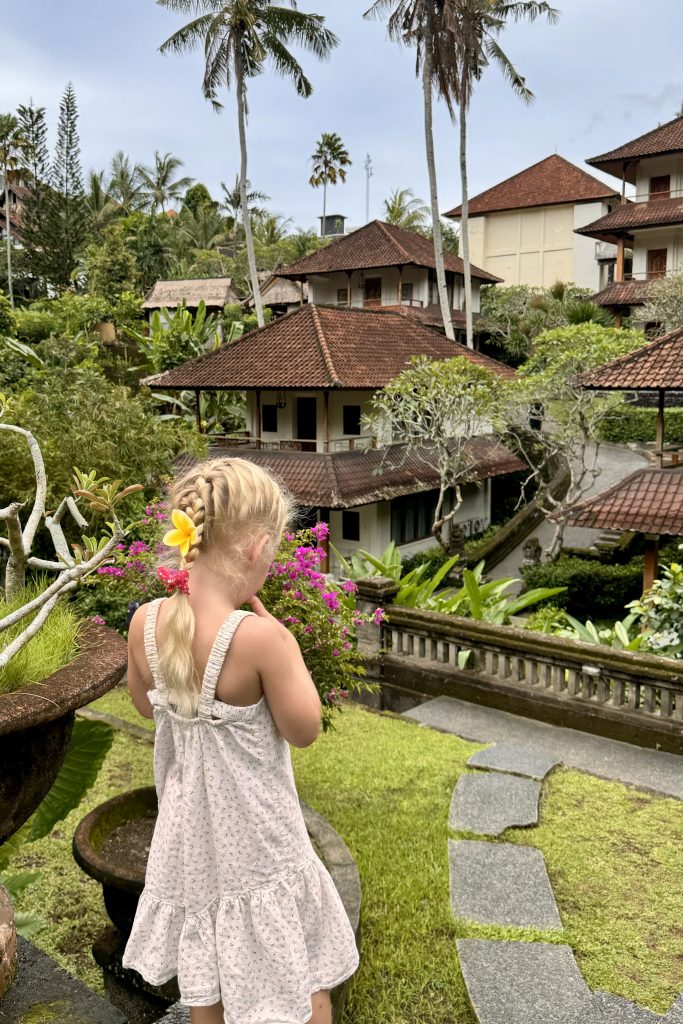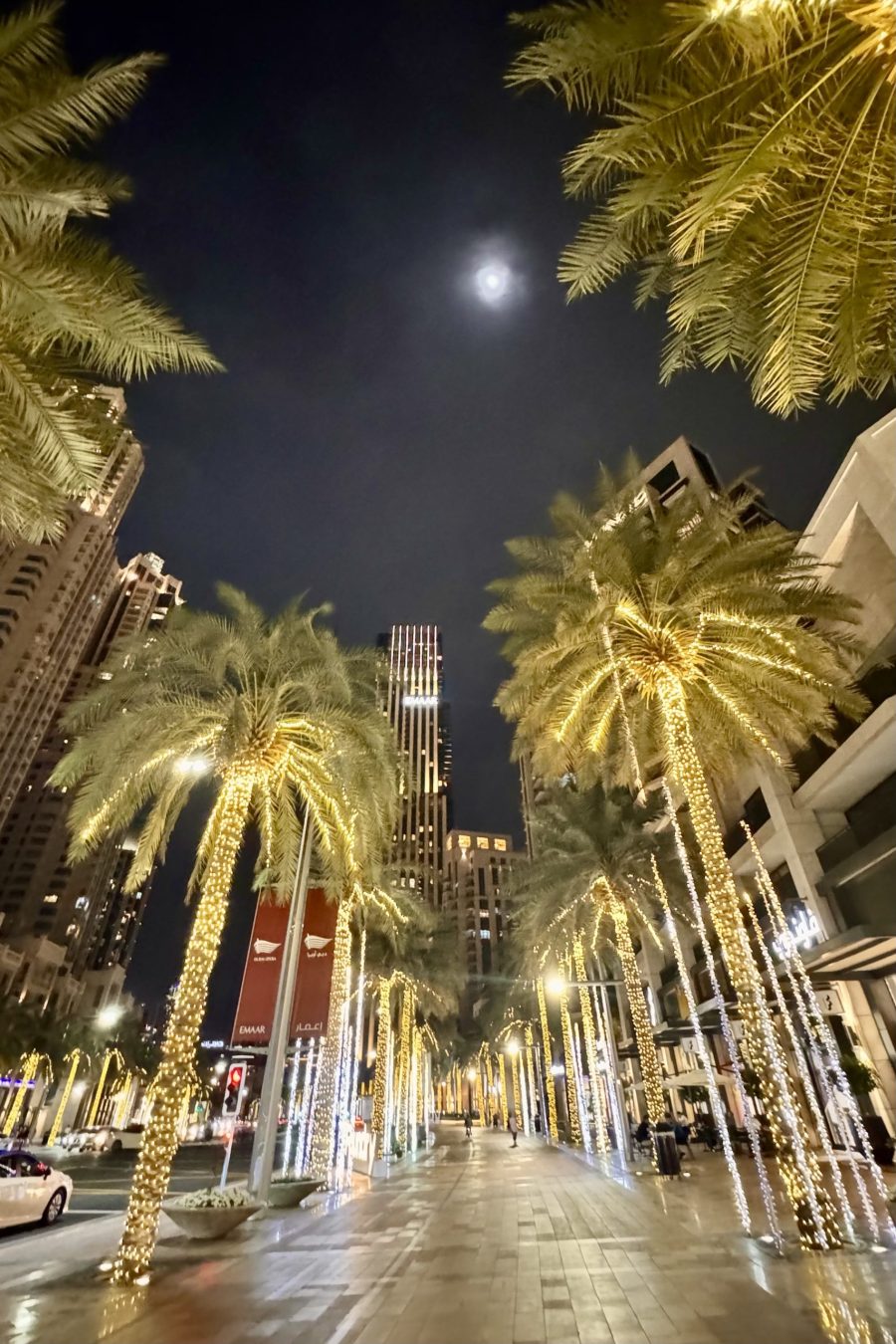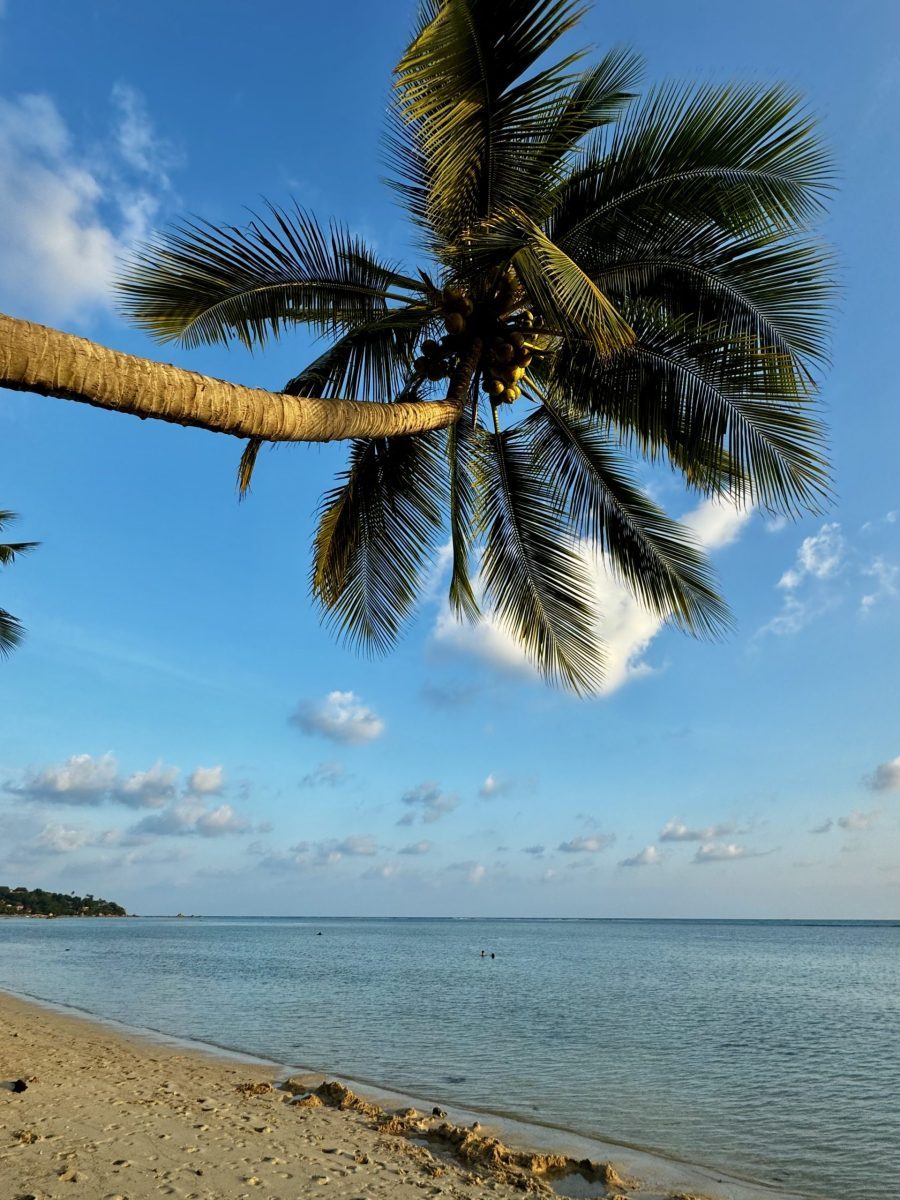Our family landed on the island of Bali, expecting vibrant colors, warm beaches, and the bustling energy that Bali is famous for. Little did we know that our trip coincided with one of the island’s most significant holidays—Nyepi, the Balinese Day of Silence.
At first, we were somewhat alarmed by the concept of this holiday: on Nyepi, the entire island essentially shuts down. Shops and businesses close, flights are grounded, and everyone is required to stay indoors, refraining from any activity that could disturb the silence.
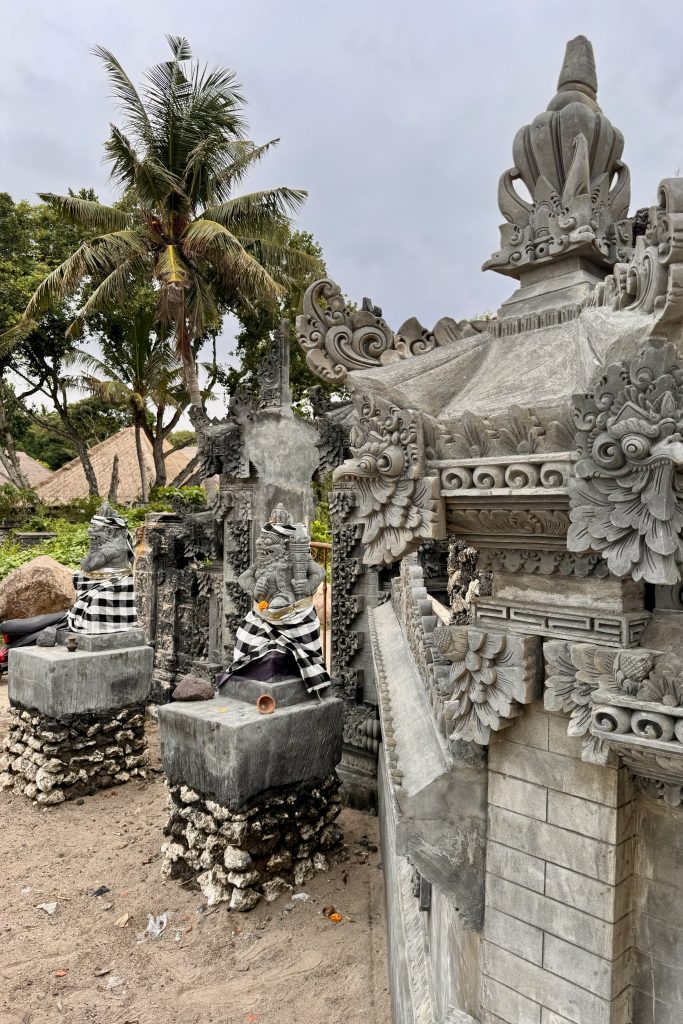
Curious and slightly anxious, we wanted to learn more about this unique tradition. What is Nyepi all about? Why is it celebrated in such a quiet, reflective way, and what significance does it hold for the Balinese people? In this article, I’ll share what we discovered about this fascinating celebration and how it allowed us to glimpse a different side of Bali.
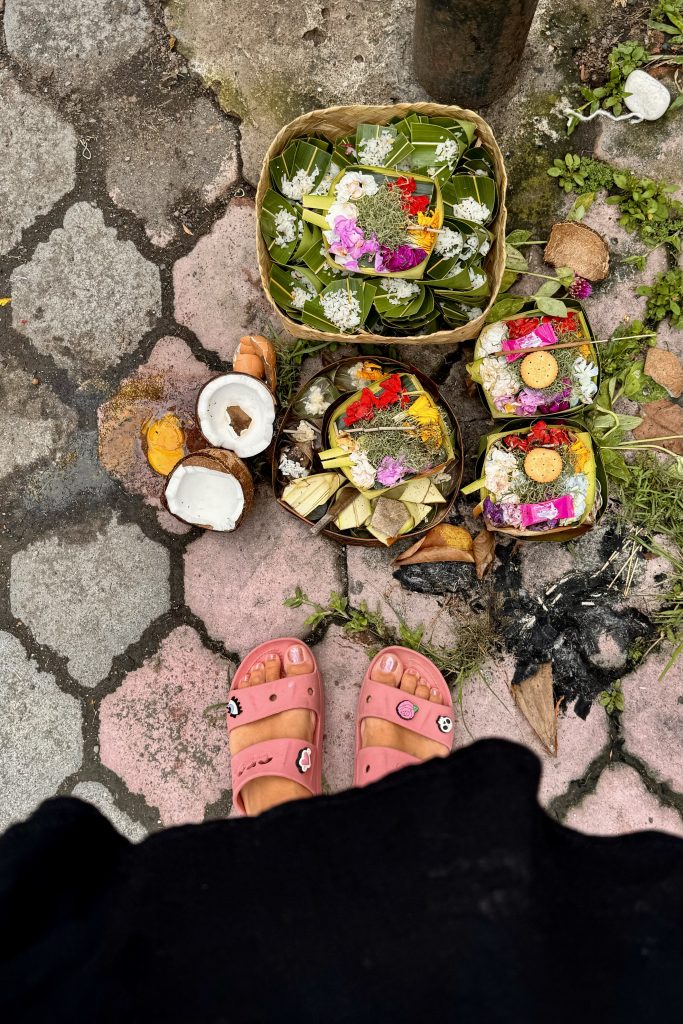
Nyepi in Bali: A Peaceful Retreat and Spiritual Experience
Nyepi, also known as the “Day of Silence,” is a unique and deeply spiritual holiday celebrated in Bali. Rooted in Balinese Hinduism, Nyepi is the Balinese New Year, based on the Saka lunar calendar, and typically falls in March.
Unlike traditional New Year celebrations filled with parties and fireworks, Nyepi is marked by total stillness, introspection, and respect for nature and spirituality. It’s a day dedicated to self-reflection, purification, and balance, both individually and communally.
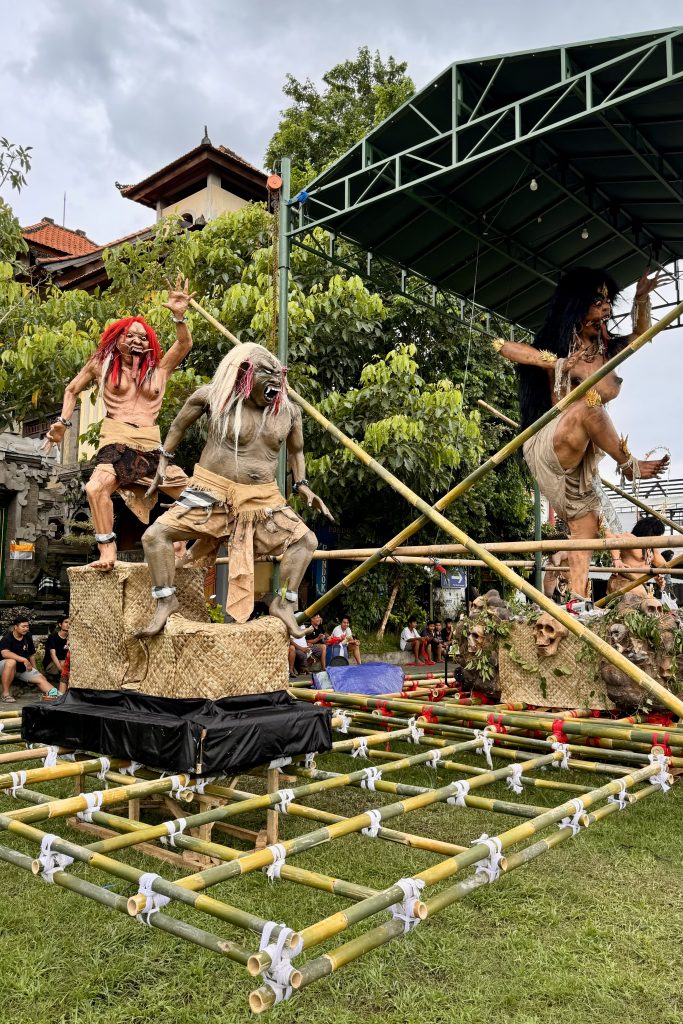
The holiday’s rituals begin days before the Day of Silence. The celebration kicks off with the Melasti ceremony, during which villagers gather at temples and make their way to the sea, lakes, or rivers. The purpose of Melasti is to cleanse both physical and spiritual impurities, preparing the community for a fresh start.
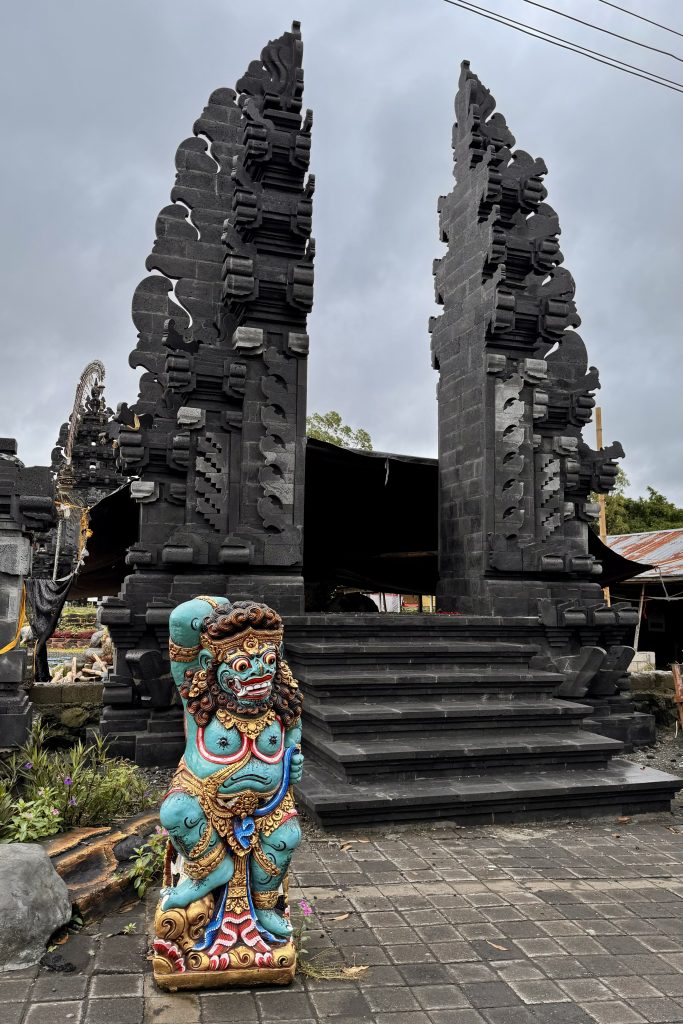
Offerings and prayers are made, with participants symbolically washing away any negativity and leaving behind past misdeeds.
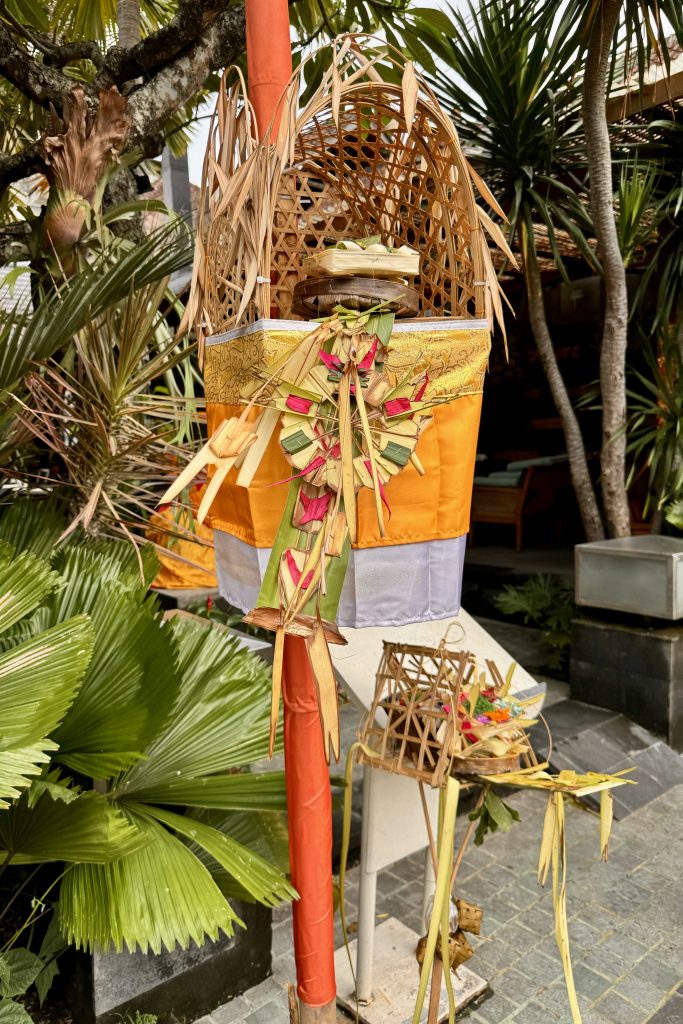
In the days leading up to Nyepi, Bali is filled with a sense of anticipation and preparation. Villages and towns come alive with activity as people prepare for this sacred time.
The scent of incense fills the air, drifting through every street and alley. Fragrant incense sticks, known locally as dupa, are lit throughout the island, creating a unique and calming atmosphere. These sticks, infused with natural herbs and essential oils, release their aromas as an offering to both gods and spirits, symbolizing purification and reverence.
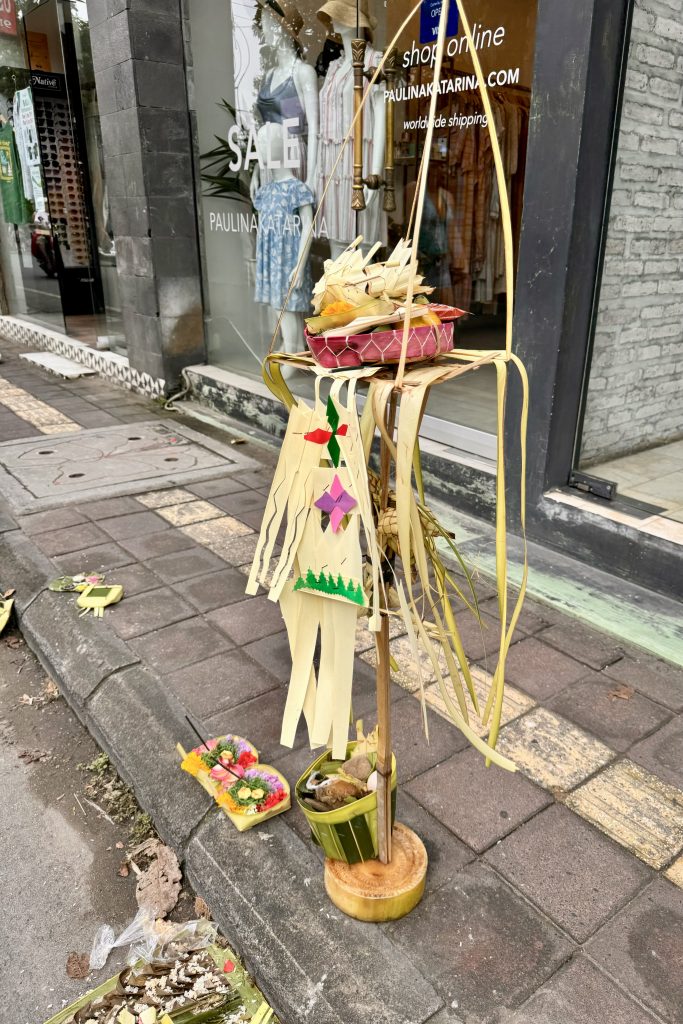
As part of the preparations, Balinese families and communities create intricate offerings for the gods and, conversely, for the demons. The offerings to the gods, known as banten saiban, are beautifully arranged and placed on household and temple altars.
These offerings typically include colorful flowers, fruit, rice, and traditional cakes made from rice flour, such as jaja. Carefully crafted and thoughtfully arranged, these gifts are intended to show gratitude and ask for blessings, peace, and prosperity in the coming year.
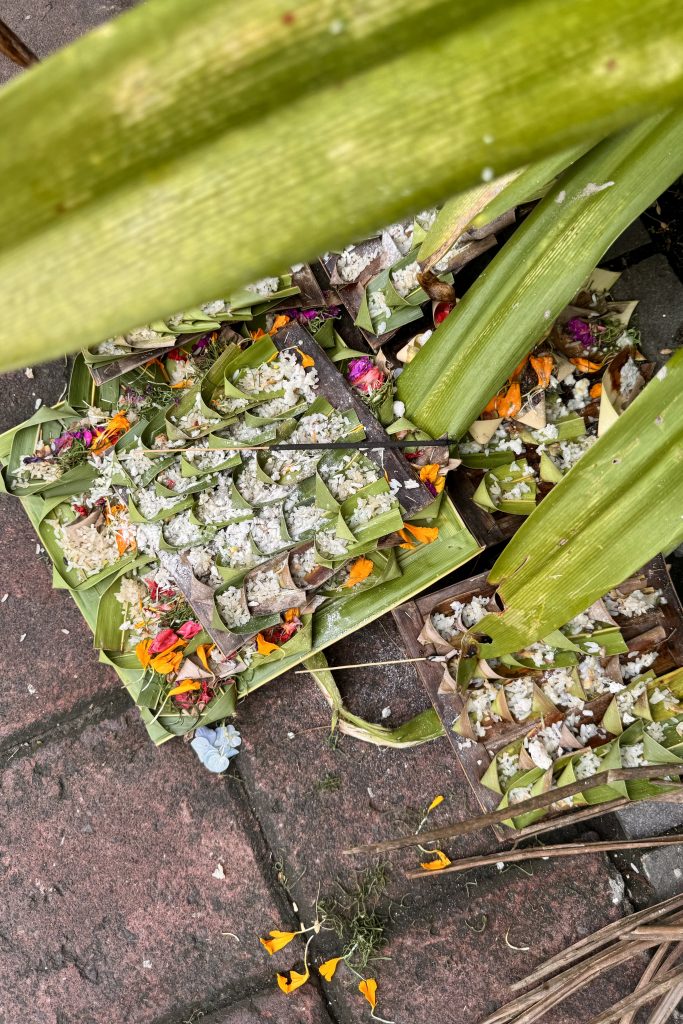
On the other hand, offerings for the demons, called caru, are more modest and are placed directly on the ground, often at doorsteps or crossroads. These offerings usually consist of uncooked rice, small bits of meat, leaves, and even chilies.
Caru offerings aim to appease and satisfy negative spirits, keeping them at bay and ensuring they don’t disrupt the sacred peace of Nyepi. Balinese believe that by acknowledging these forces, they can maintain a balanced relationship between good and evil, respecting both the gods and the spirits.
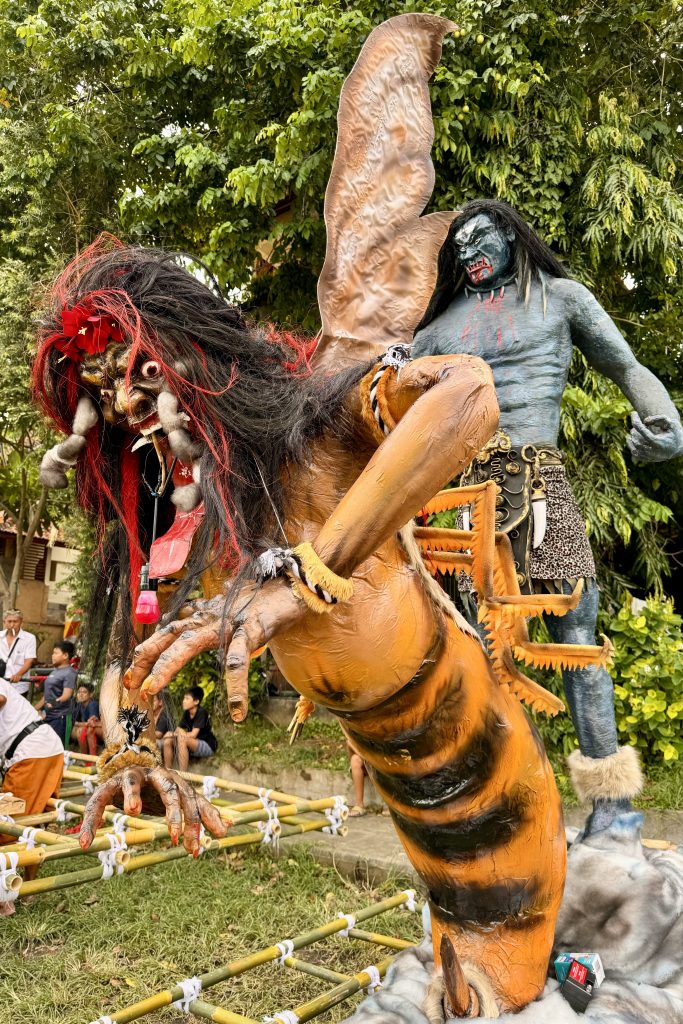
This period of preparation reflects the dual nature of Balinese spirituality, which embraces both light and dark forces in a harmonious balance. Each offering, each lit incense stick, and each carefully placed item serves to purify the island and its people before entering the silence of Nyepi.
It’s a time of collective dedication, where the entire community works together to prepare for a day that holds profound spiritual significance.
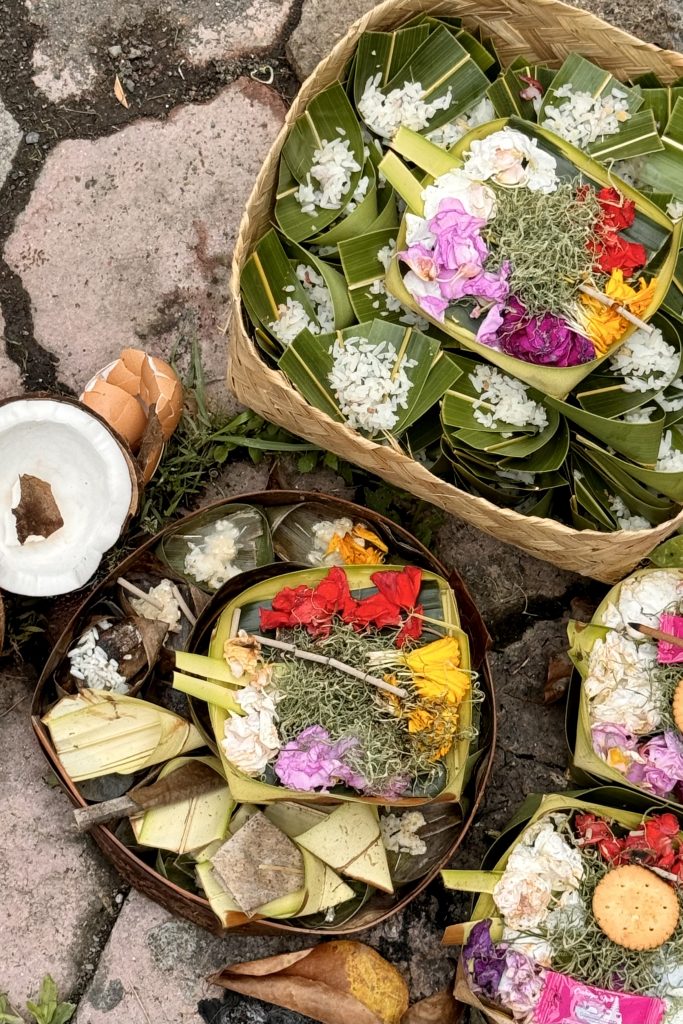
Ogoh-Ogoh Parade: Bali’s Vibrant Ritual of Cleansing Before Nyepi
On the eve of Nyepi, a lively and dramatic ceremony called the Ogoh-Ogoh parade takes place. Ogoh-Ogoh are large, handcrafted demon statues representing negative spirits and impurities. The locals create these figures with vibrant colors and intricate designs, and the parade is filled with music, chanting, and noise to frighten away evil spirits.
This ritual symbolizes purging the world of evil before entering a period of silence. After the parade, the Ogoh-Ogoh statues are often burned, symbolizing the destruction of negativity.
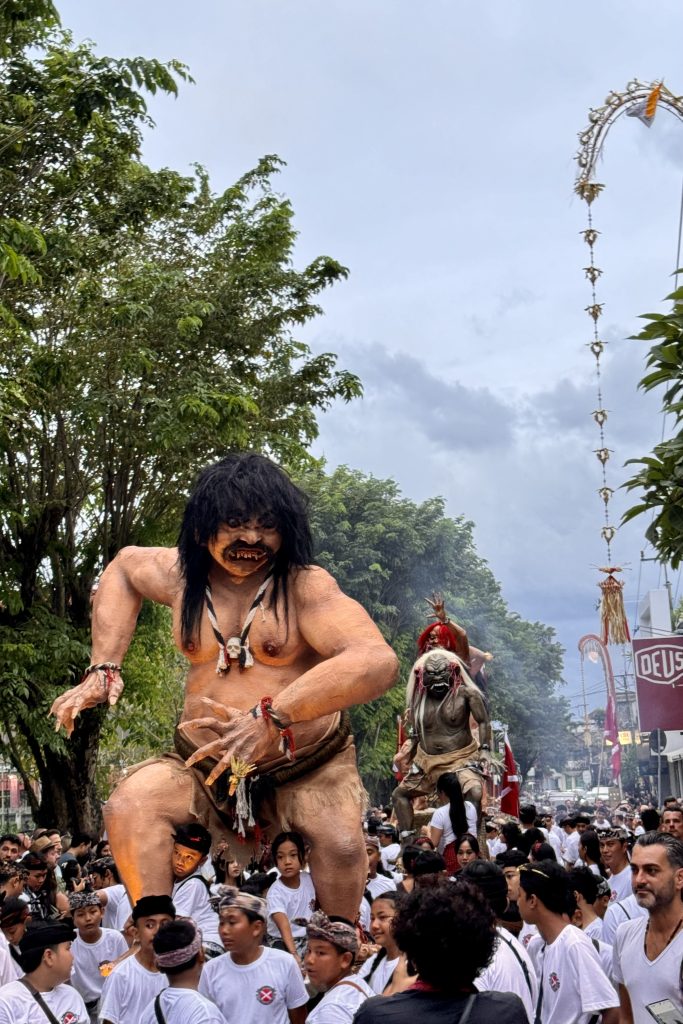
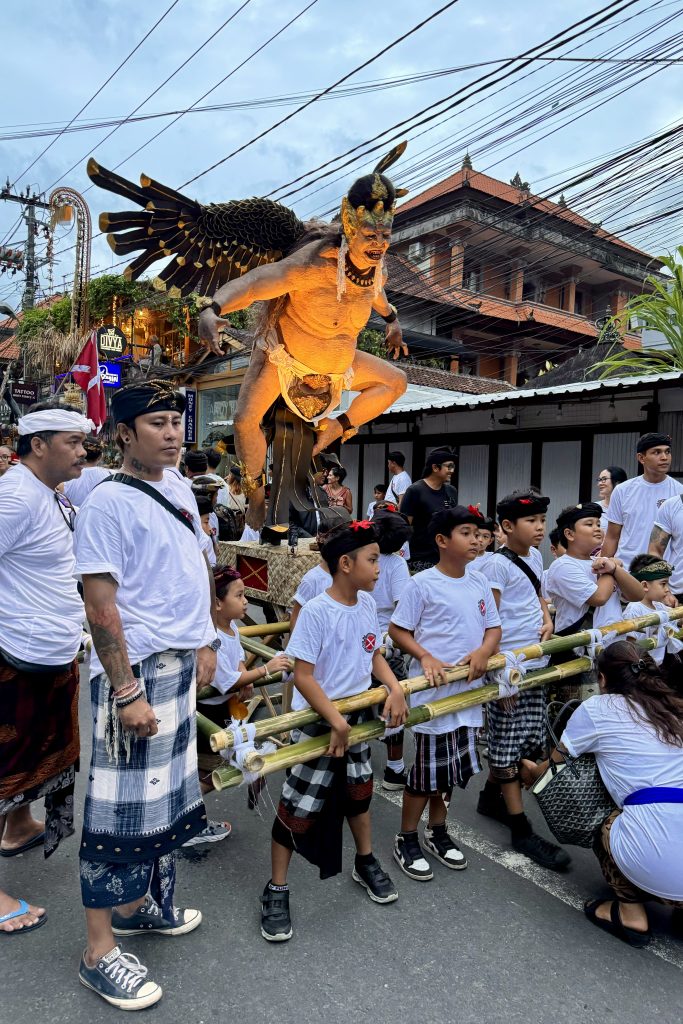
Then comes the heart of the celebration: Nyepi itself. From 6 a.m. until 6 a.m. the following day, the entire island observes strict rules. No one is allowed outside; no lights, no noise, and no travel. Even the airport shuts down for 24 hours.
The goal is to create an atmosphere of complete stillness, tricking any remaining evil spirits into believing that Bali is uninhabited, so they’ll leave the island undisturbed. It’s also a time for Balinese people to engage in deep self-reflection, meditate, and connect with their spiritual side.
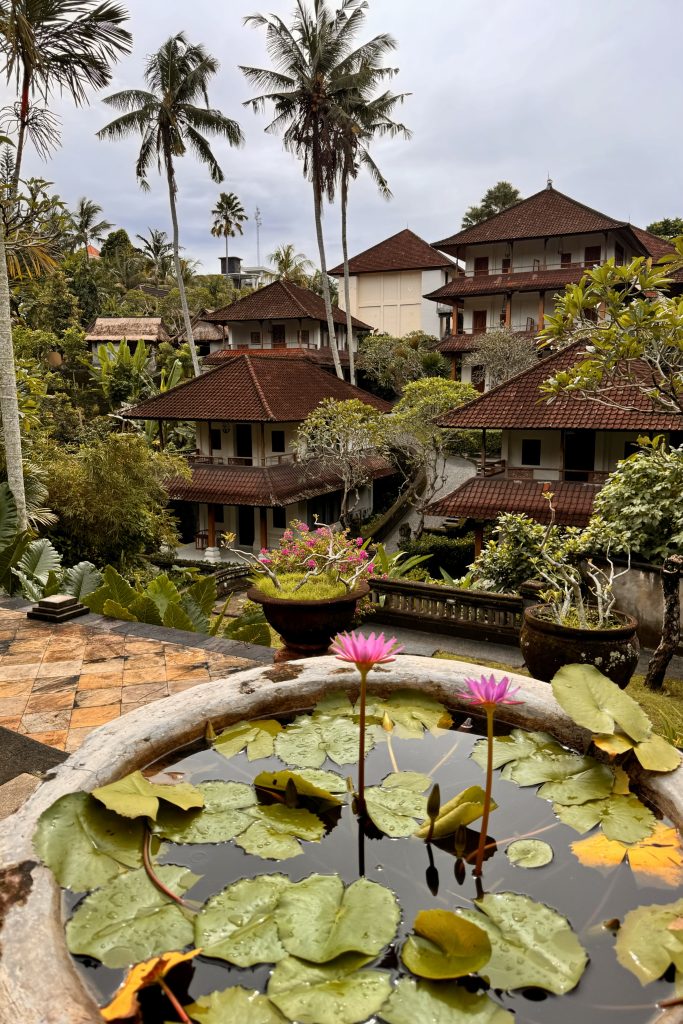
For the Balinese, Nyepi holds profound meaning. It’s not just a holiday but a sacred time to find balance within themselves and in harmony with the universe. It reflects the Balinese concept of Tri Hita Karana, the belief that happiness and well-being are achieved through a harmonious relationship between people, nature, and the spiritual world.
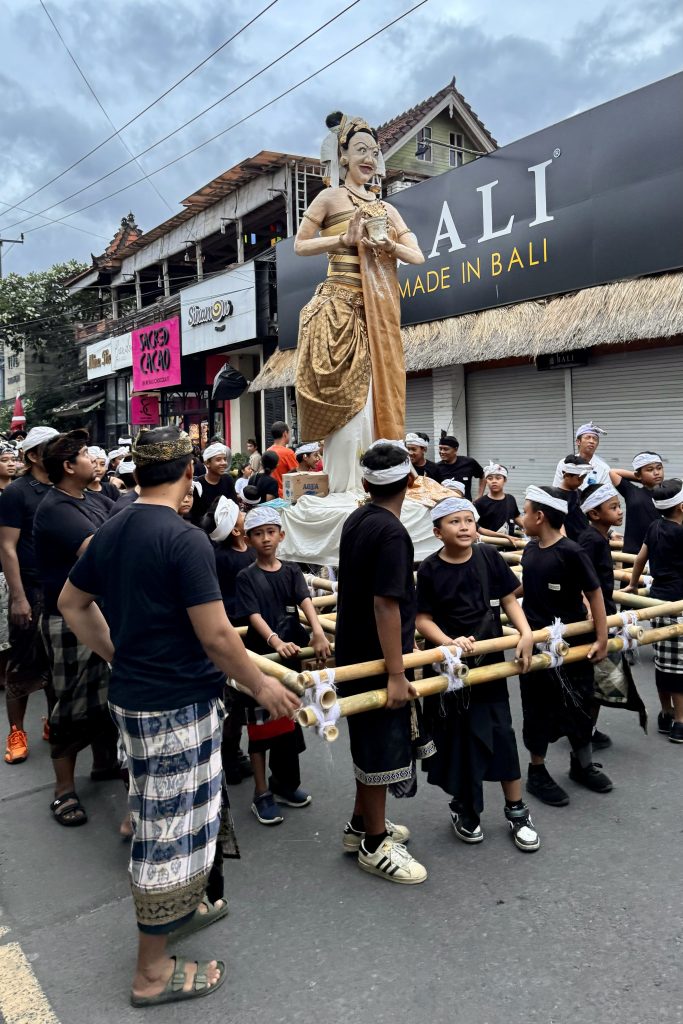
This day of silence helps people reconnect with their core values, contemplate their lives, and set intentions for the new year.
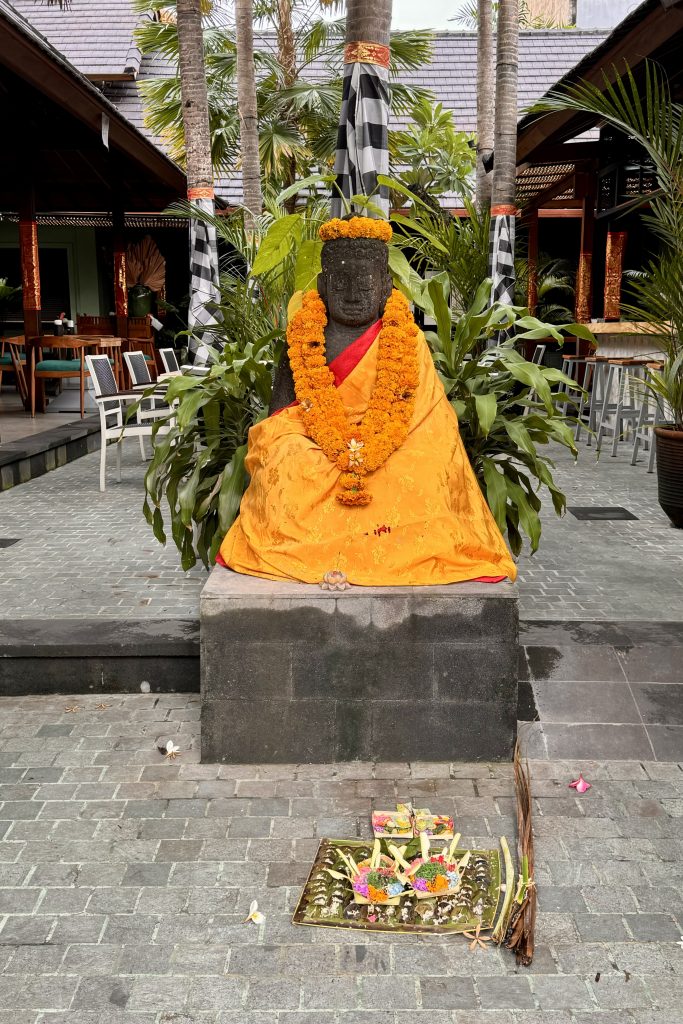
For visitors, experiencing Nyepi can be a profound shift from the typical holiday experience. Although the day’s restrictions might initially feel daunting, they provide an opportunity to engage with the island’s culture on a deeper level, offering a chance to pause, reflect, and appreciate the Balinese way of life.
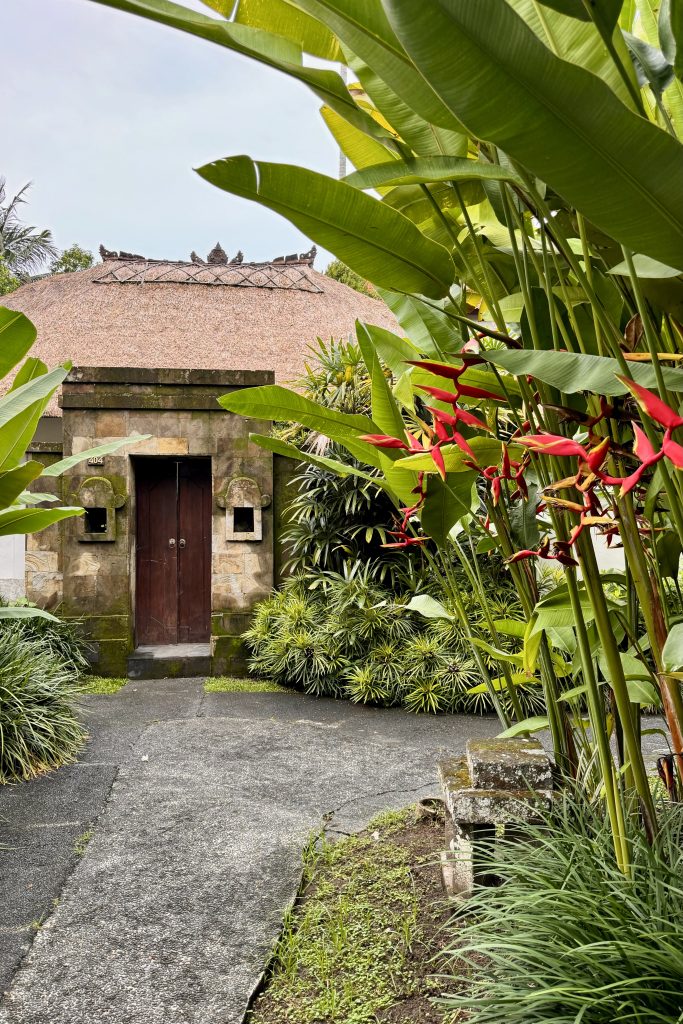
Nyepi: A Unique and Fascinating Experience Worth Trying
Nyepi is an extraordinary time on Bali, and if you have the chance, we highly recommend planning a visit during this period to experience it firsthand. To fully enjoy the holiday, it’s best to choose a resort with an enclosed area. We spent Nyepi in Ubud at the Pertiwi Resort and Spa, which offers private villas and rooms in a large, beautifully landscaped setting.
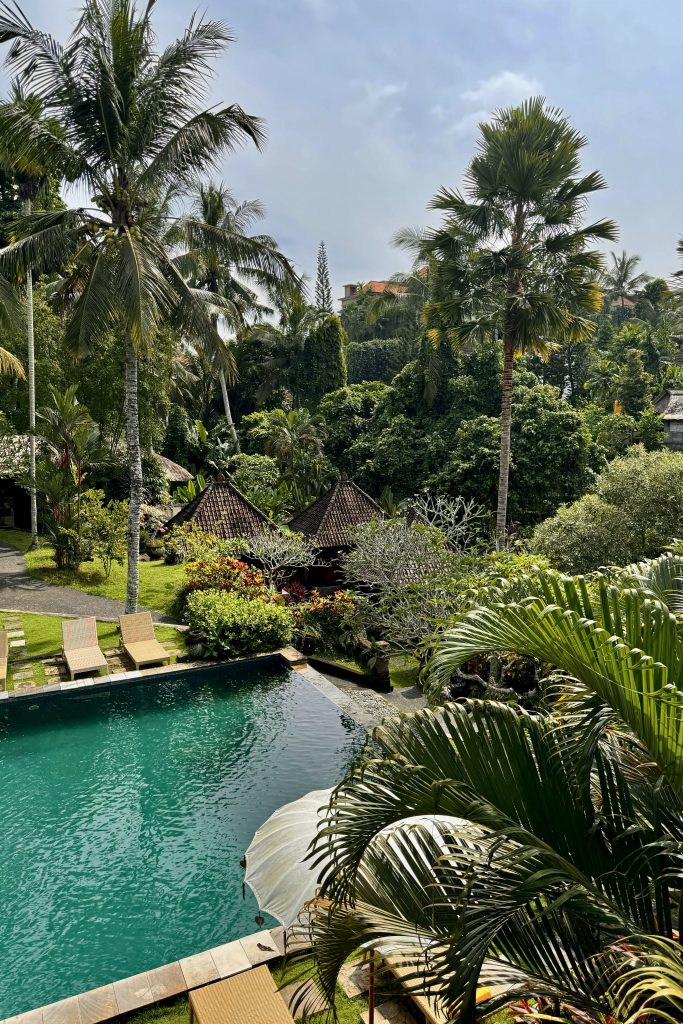
Despite the holiday’s restrictions, the resort restaurant was open, serving delicious local dishes for breakfast, lunch, and dinner. The spa also remained available, offering relaxation and exceptional massages. In such a resort, you won’t feel confined to your room; you can stroll around the grounds freely, enjoy the pool, and appreciate the tranquility.
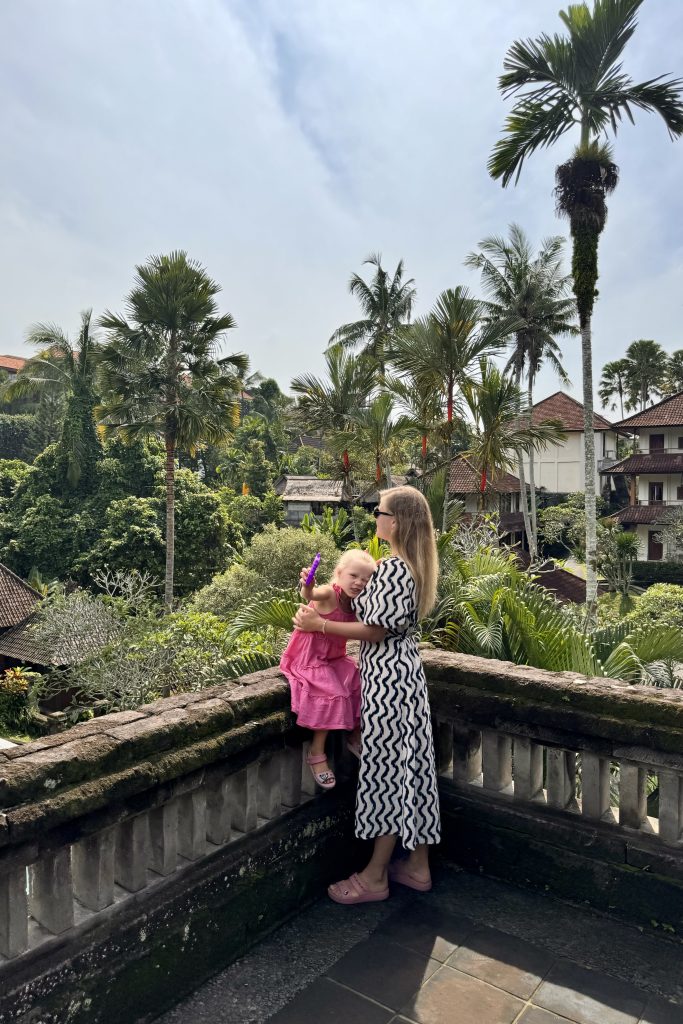
A few practical tips: stock up on some water and snacks for the day, though it’s only one day, so it’s manageable. If you’ll need cash, be sure to withdraw it a couple of days before Nyepi, as ATMs are often turned off for several days leading up to the holiday. Don’t worry, and embrace the experience of Nyepi—it’s a beautiful opportunity to witness Bali’s deep spiritual traditions.
